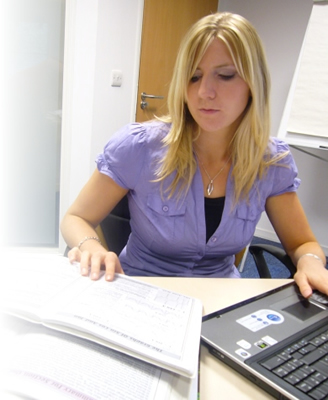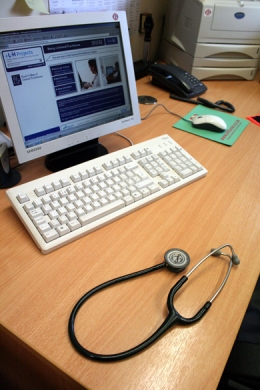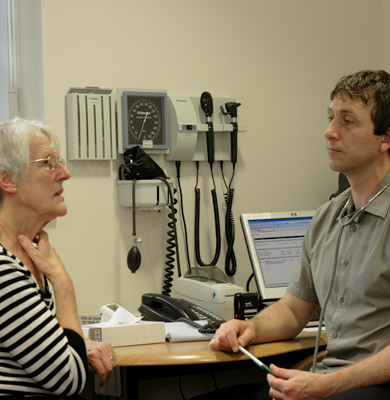Critical Appraisal - Therapy RCT course for GPs



This session looks at answering a question posed by a patient about a therapeutic intervention. The session includes a critical appraisal of a randomised control trial.This session was reviewed by Suchita Shah and last updated in February 2015.
Learning ObjectivesBy the end of this session you will be able to:
- Demonstrate that you can formulate a question from a patient consultation (step 1: ask a question)
- Apply the ability to find a paper to help you answer the question raised from the consultation (step 2: find the paper)
- Appraise a paper in terms of its applicability and methodology (step 3: appraise the paper)
- Recognise how some of the statistics apply to papers on therapeutic outcomes
- Assess how this information will help you in future consultations (step 4: apply the paper in practice)
- Evaluate any change in practice (step 5: evaluate the outcome)
In this session you will look at a paper that has been generated in primary care on a therapeutic intervention. The paper used in this session investigates the effect of an intervention that is not simply the prescription of one drug to an individual, but also involves the use of another therapeutic technique (delaying the prescription).
Before commencing this session you should:
- Complete session - Introduction to EBP, which introduces some of the aspects of this session
- Download the reference guide with all the mathematical formulae used in this session which can be stored or printed to assist with critical appraisal calculations (Select: Resources > Downloads > Critical appraisal basic statistics formulae.pdf)
- Have access to a calculator
Dr Veronica Wilkie is a General Practitioner (GP) in a training practice in Droitwich, Worcestershire, and a Senior Clinical Teaching Fellow at the Institute of Clinical Leadership at Warwick University Medical School. She has a master’s degree in Evidence-based Medicine and was a GP trainer, course organiser and postgraduate tutor, before starting her current post at Warwick University. She is currently working with the NHS Institute on evaluating the implementation of the Medical Leadership Competency Framework, and she teaches and facilitates courses on medical leadership and evidence-based practice (EBP). She is the Curriculum Guardian for the EBP statement for the Royal College of General Practitioners (RCGP) curriculum. (March 2008).

- Communication Impairments Part 4: Autistic Spectru...
- Posted By eIntegrity Healthcare e-Learning
- Posted Date: 2025-01-22
- Location:Online
- This session is the last of four that looks at different speech, language and communication impairme...
- Communication Impairments Part 3: Cleft Palate, He...
- Posted By eIntegrity Healthcare e-Learning
- Posted Date: 2025-01-22
- Location:Online
- This session is the third of four which describe different speech, language and communication impair...
- Communication Impairments Part 2: Specific Speech ...
- Posted By eIntegrity Healthcare e-Learning
- Posted Date: 2025-01-22
- Location:Online
- This session is about speech sound disorder (SSD). It describes the characteristics associated with ...
- Communication Impairments Part 1: Late-talking Tod...
- Posted By eIntegrity Healthcare e-Learning
- Posted Date: 2025-01-22
- Location:Online
- This session is the first of four which describe different speech, language and communication impair...
- Typical Development Part 2: First Words and Early ...
- Posted By eIntegrity Healthcare e-Learning
- Posted Date: 2025-01-22
- Location:Online
- This session gives an overview of the main aspects of how language typically develops in children. I...








